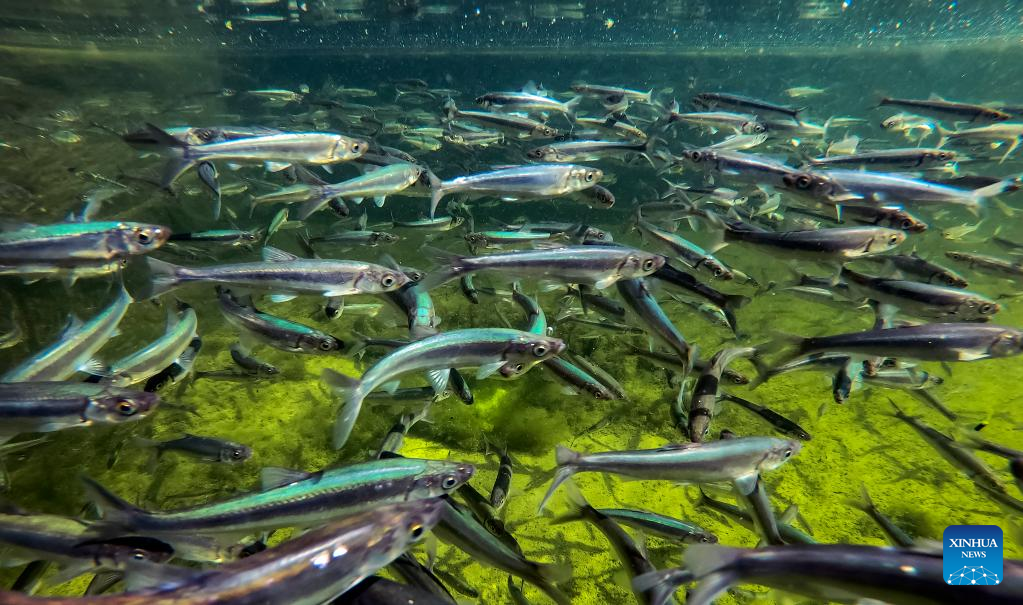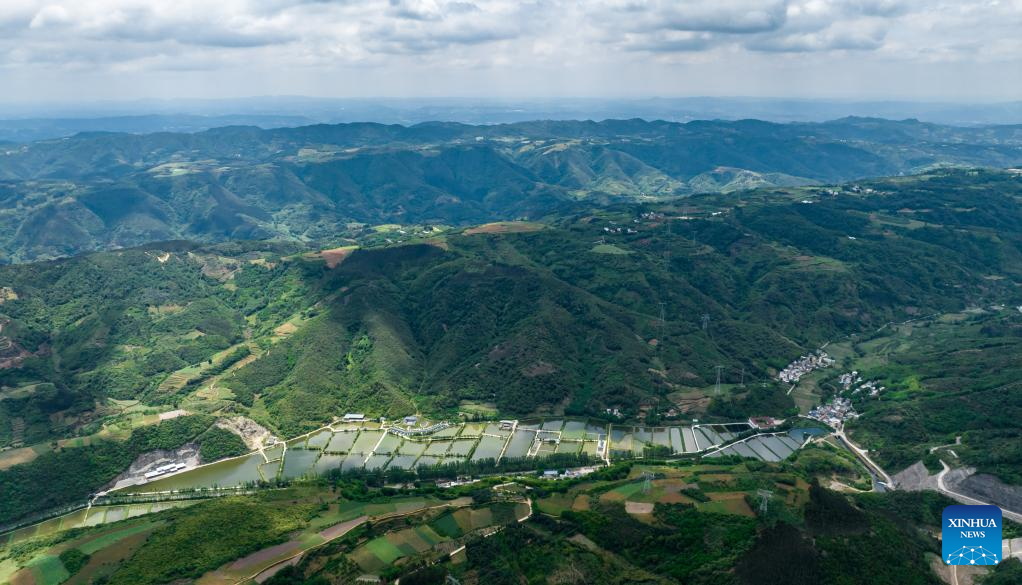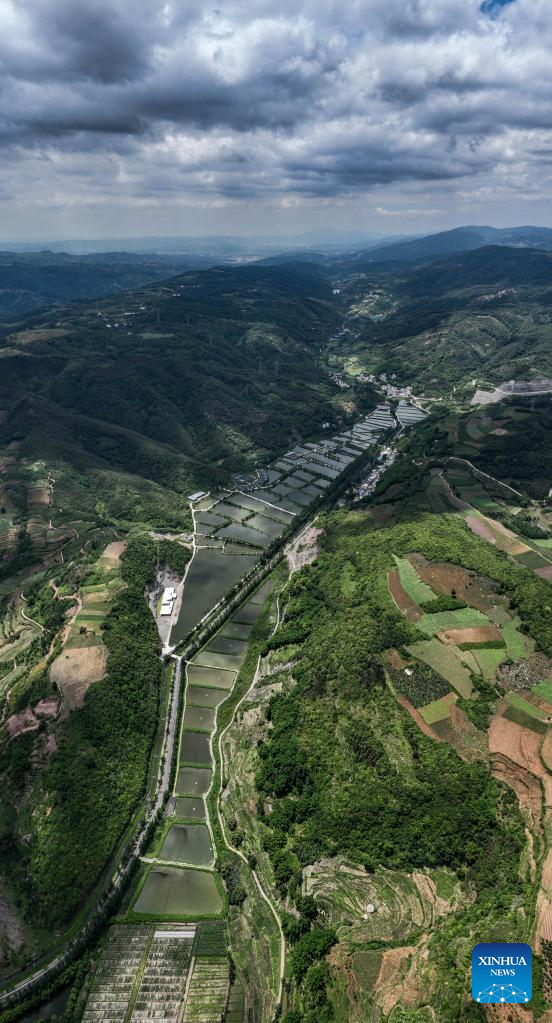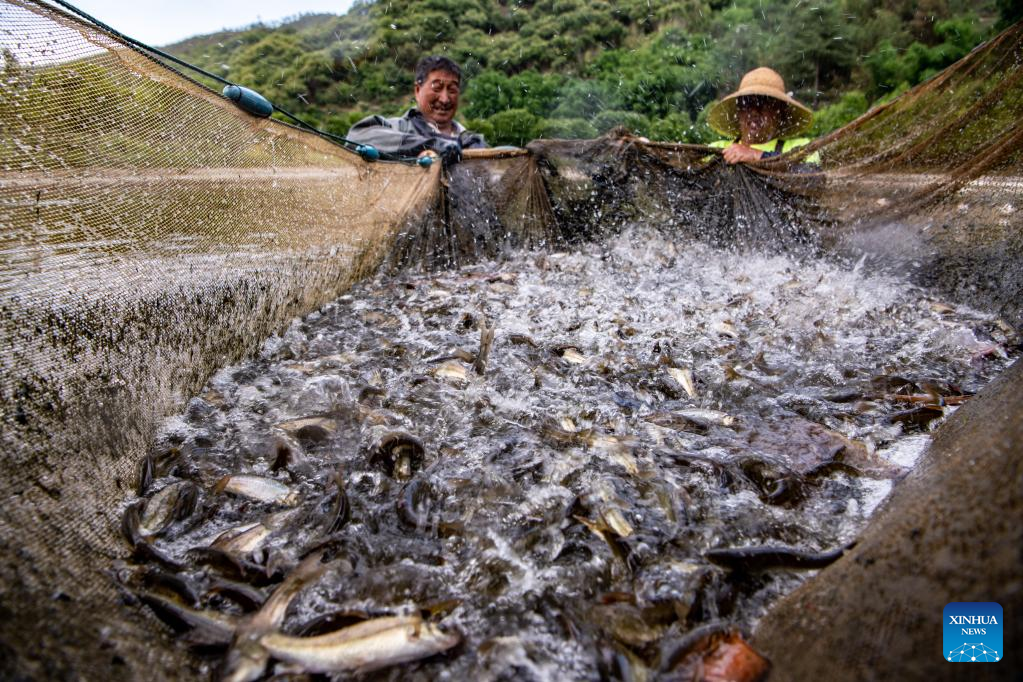
Photo taken on June 19, 2022 shows the Kanglang white minnow, or Anabarilius grahami at an aquatic product breeding base in Yiliang County, southwest China's Yunnan Province. (Xinhua/Jiang Wenyao)
KUNMING, Sept. 29 (Xinhua) -- Yin Shumao used to be a layman when it came to breeding fish, but now he is almost an expert in this field.
The 56-year-old from Yiliang County, southwest China's Yunnan Province, mainly cultures the Kanglang white minnow, or Anabarilius grahami. Such a common fish species could be made into a delicacy during Yin's childhood. After the 1990s, due to overfishing and species invasion, it was hard to find a Kanglang white minnow.
The fish mainly lives in the Fuxian Lake in Yunnan. One day in 1995, Yin came to a restaurant near the lakeside, trying to order a plate of such fish. The restaurant owner told him few people could afford the dish because the once commonly seen fish became so rare, and its price also surged.
The experience gave him the idea of breeding this fish. Shortly after, Yin bought 1 kg of such fish from several restaurants and fishermen's homes for 4,000 yuan (about 560 U.S. dollars). It was the starting point for his business. However, in the breeding process, because of the thin scales of the fish, it was easy to cause them to die once they were injured.
Yin began to figure out how to improve the breeding conditions and methods such as water temperature, water quality, and bait. Gradually, he mastered the breeding techniques.
Yin believed in improving the emergence rate of fry, which was greatly affected by natural conditions. The Kanglang white minnow spawns against the current, and their eggs are often attached to aquatic plants and reefs.
Yin observed the spawning process in the fish pond, tried different ways to collect fish eggs, and finally simulated the counter-current environment and selected waste fishing nets as the collection tool.
Thanks to his efforts, the fertilization rate of the fish is over 90 percent, and the emergence rate of fry stays at around 80 percent, which is much higher than that of natural spawning.
"The protection of every species is time-consuming and labor-intensive," Yin said, adding that every step should be explored, mulled, and adjusted according to different situations when protecting indigenous fishes.
Yin is now in charge of an aquaculture company in Yiliang. The company breeds more than 150 million high-quality indigenous fish annually, including some 120 million Kanglang white minnow.
The company has also established cooperative relations with higher education institutions and cultivated more than 20 technicians.
With the support of government departments and social organizations, more than 4 million Kanglang white minnow have been released in the Fuxian Lake. ■

Aerial photo taken on June 19, 2022 shows an aquatic product breeding base in Yiliang County, southwest China's Yunnan Province. (Xinhua/Jiang Wenyao)

Aerial photo taken on June 19, 2022 shows an aquatic product breeding base in Yiliang County, southwest China's Yunnan Province. (Xinhua/Jiang Wenyao)

Photo taken on June 19, 2022 shows workers catching indigenous fish at an aquatic product breeding base in Yiliang County, southwest China's Yunnan Province. (Xinhua/Jiang Wenyao)



